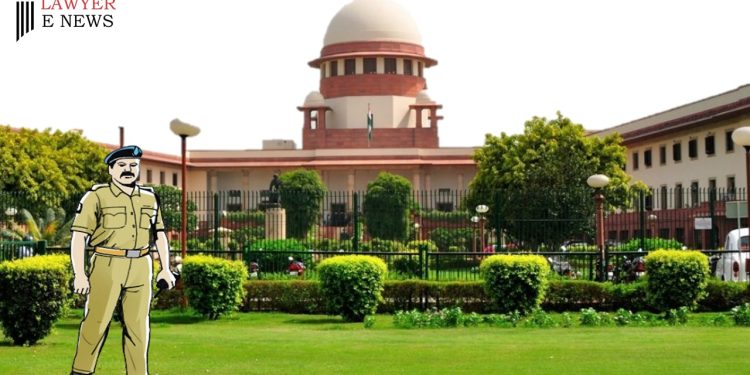Supreme Court: Mere acquittal not a ground for employee reinstatement

In a recent Judgement (IMTIYAZ AHMAD MALLA Vs. THE STATE OF JAMMU AND KASHMIR AND OTHERS D.D. 28 Feb 2023) Supreme Court held that mere acquittal does not entitle an employee to reinstatement, and that being acquitted or discharged does not necessarily mean that the person was falsely involved or had no criminal antecedents.
Facts
Petitioner was selected for the position of constable in the Jammu and Kashmir Executive Police but was later found to have a criminal case pending against him. His appointment was cancelled, and he challenged the cancellation in court. He was later acquitted in the criminal case and the High Court set aside the order cancelling his appointment. However, on reconsideration, the Director General of Police found him unsuitable for the position due to his criminal background and cancelled his appointment again. The petitioner filed a writ petition seeking reinstatement, which was dismissed by the Single Bench and later by the Division Bench in appeal.
The precise question that fell for consideration before the court was whether the Director General of Police, Jammu & Kashmir, Srinagar, who had examined the record of the petitioner and concluded that he was not a fit person to hold the post in the police force due to his criminal background, could be compelled to reinstate the petitioner after his acquittal in the criminal case.
Observed and Held
The petitioner’s counsel argued that his acquittal in the criminal trial meant that it should be considered an honorable acquittal, and the basis for presuming his criminal background was no longer valid. The court examined the judgment of the criminal trial and found that the investigating officer was not produced and examined, there were material contradictions, and the prosecution failed to prove the charges against the petitioner.
The Supreme Court noted that the phrase “honourable acquittal” is not defined in the Criminal Procedure Code and is difficult to define precisely. The court examined the judgment of the criminal trial and found that the petitioner was afforded a benefit of doubt and the investigating officer was not examined by the prosecution. The court also referred to previous cases where it was held that mere acquittal does not entitle an employee to reinstatement, and that being acquitted or discharged does not necessarily mean that the person was falsely involved or had no criminal antecedents.
Supreme Court observes that the requirement of integrity and high standard of conduct in the police force has been highly emphasized. The court notes that the High Court has elaborately dealt with the issues involved in this case and upheld the order of the Single Bench, which stated that the Director General of Police was the best judge to consider the petitioner’s suitability for induction into the police force.
The court finds no infirmity or illegality in the High Court’s order and, therefore, declines to interfere with it under Article 136 of the Constitution of India. The court notes that Article 136 is a very special and extraordinary power and must be exercised in rare and exceptional cases. Since the court finds no grounds to interfere with the High Court’s order, the present petition is dismissed.
IMTIYAZ AHMAD MALLA Vs. THE STATE OF JAMMU AND KASHMIR AND OTHERS



